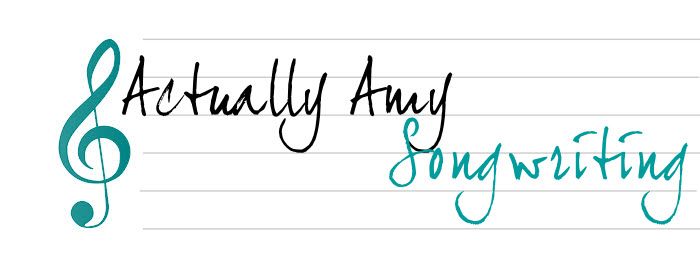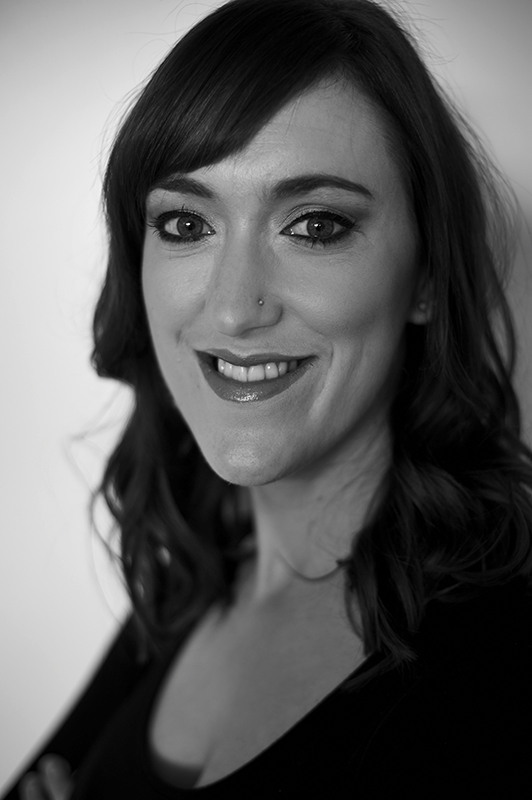Today we feature our first musician – Amy Clayton from ActuallyAmy – enjoy the interview!

Tell us a little bit about yourself! What inspired you to become a musician?
My name is Amy and I’m a freelance musician and run my company ActuallyAmy Songwriting – we specialise in workshops providing children and young people with a way to develop their creative and expressive skills through songwriting.
I always loved my instrumental lessons over academic subjects in school. In secondary school I felt I didn’t really fit in as core subjects like science and maths didn’t enthuse me, music was the one subject that ignited my passion, although I did enjoy creative writing and loved the teamwork aspect of sports.
In piano lessons after a couple of years my teacher encouraged me to play in National Festival competitions in duet and trio categories. I realised that playing music can be a social activity; it gave me an expressive outlet that I could share with other people (I’d always played the piano as a soloist) having a sense of community in music was an important turning point for me.
In addition, my first clarinet teacher was a big inspiration to me, I looked up to her and remember how she produced such a beautiful tone so effortlessly – I wanted to be able to play like that! She encouraged me so much and helped me believe I could better myself every day. My lessons were enjoyable and challenging too.

You are a clarinettist as well as a pianist. Was learning the second instrument easier?
Yes it was, I began learning the piano first; it gave me a strong grounding in harmony and is technically more challenging than a solo instrument, so this set me in good stead for the clarinet.
Outside of teaching, how do you improve your own craft?
I feel that encouragement sits at the core of what I do. It’s impossible to draw any kind of enthusiasm from a young person (or adult!) to do anything musically unless they are in a safe, relaxed environment where they feel comfortable and able to take creative risks.
I guess it comes quite naturally to me to encourage people around me, be it friends or even someone I’ve just met – it builds trust and that’s a powerful connection. I love to find out what puts fire in peoples hearts, because that’s where they’re truly shining when they know.
Do you have a unique teaching approach?
With a young person for instance, I wholeheartedly believe that the key to getting the most from a person musically is getting down to the same level, where they can relate to you as an equal. I strive to become childlike in my curiosity towards their learning, frequently asking why and being open to their ideas.
Through a combination of encouragement and gentle challenge they can then see their progress, which excites them to want to do more.
Also, taking the time to reflect on efforts and explorations is something very powerful… If we did this from the get go our young people would be more likely to grow up to be more grounded, authentic adults.
What would be your advice for people who want to become full time musicians?
If you have the dream to craft a living in the music industry, do not limit yourself! I fully believe that if you want to do something… Give your whole self to your dream… You absolutely can’t be half hearted in something that important.
Dream big and make small steps every day towards where you want to be, use your curiosity by speaking to people who are doing what you want to do and where you want to be.
The best piece of advice I was ever given, regardless if it is paid or not, was to take every opportunity that comes your way in the first five years of your career.
“It’s not what you know, it’s who you know” or, in better terms, “it’s not who you know, it’s who knows you”. The more people you meet and create lasting connections with, the steadier the growth of your business will be. Knowing lots of people in your industry means you will have a higher rate of referrals and recommendations. This applies to whether you are a performer, composer, facilitating workshops or something else.
When you first start, it will be necessary to supplement your income with teaching as this brings in a steady income and will set you up for whatever area you wish to go into – or to build a full time teaching schedule.
What impact do you believe music has on the people you work with?
From my experience, learning music gave me an outlet, somewhere I could be myself and stop trying to fit in to the social pressures of how I was expected to perform in school.
For the young people I work with in my songwriting workshops, it’s massive. They are able to creatively express themselves in a way that they may not have had the confidence to do before, they have a platform to be able to express their emotions. Young people become more tenacious, team orientated and able to think creatively. Often there is a hang up making sure they give the ‘right’ answer, but music is subjective, a place open to artistic expression. The most beautiful shift I have noticed is in a child’s thought process when they realise that their contributions are completely valid, no matter how big or small.
To learn more about Amy please visit Actuallyamy.co.uk.